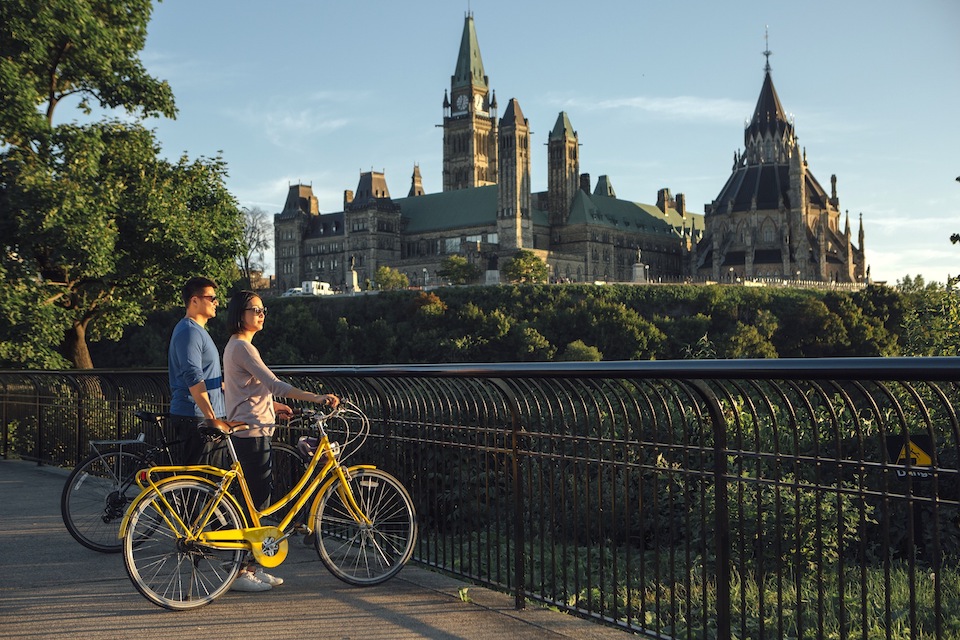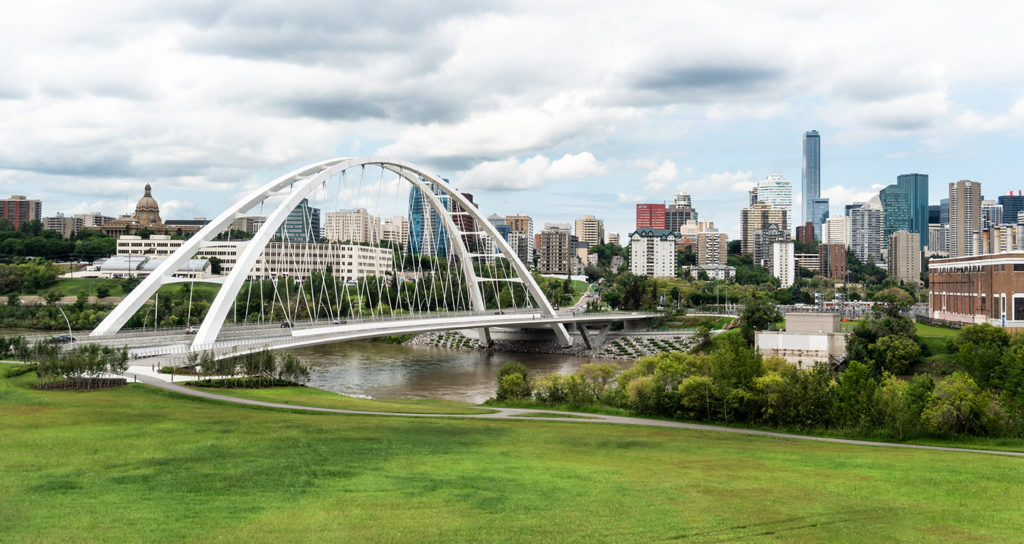
• Flip Book • eNews • eAdventures • eCities • eBikeTypes • eRoad • eMTB • eUrban • eCargo • eBikeTests •

• Flip Book • eNews • eAdventures • eCities • eBikeTypes • eRoad • eMTB • eUrban • eCargo • eBikeTests •
March 31, 2021 - Bike trips in Edmonton have nearly doubled over the past ten years, and with the launch of a new bike plan, the City aims to continue that growth.
Edmonton is home to more than 1,300km of cycling routes, and the City’s new bike plan emphasizes the importance of building a network of all-season infrastructure that is safe and comfortable for people of all ages and abilities.

This includes building more protected bike lanes, which currently comprise only 1% of the city’s network with 15km in total. Most of the existing network is made up of shared pathways.
In addition to looking at physical bike lanes, the City of Edmonton provides an online map of available bike parking and has recognized the critical importance of proper lighting for cycling safety. The bike plan includes directives to develop lighting standards for bikeways.
As a winter city, Edmonton has launched a Winter City strategy that aims to enable positive winter experiences and look at the cold and snowy winter months as an asset. Not surprisingly, this includes an emphasis on improved winter transportation options like walking, cycling and transit.
To support winter cycling, the protected bike lanes in Edmonton are maintained year-round. Of the people who cycle in Edmonton, 1 in 6 continue to cycle once the cold and snow arrive.
Like in most cities, there are dedicated community organizations and volunteers working to help more people discover cycling. Bike Edmonton runs workshops to teach people how to repair bikes and even offers an Earn-a-Bike program for youth, while Coffee Outside brings people together year-round to socialize, share information and encourage outdoor activity.

Last year, Edmonton was one of only a few Canadian jurisdictions to experiment with an e-bike rebate, offering up to $750 back on the purchase of an e-bike. Bike shops reported an influx of inquiries and customers, and the City received almost 700 applications. Despite the overwhelming interest, the three-year pilot project has now been paused due to financial concerns.